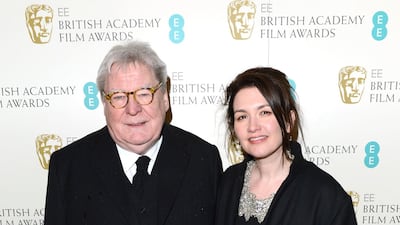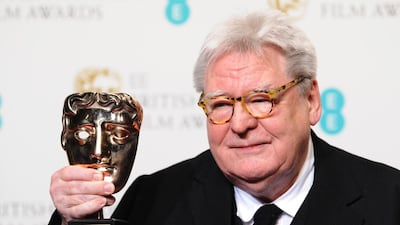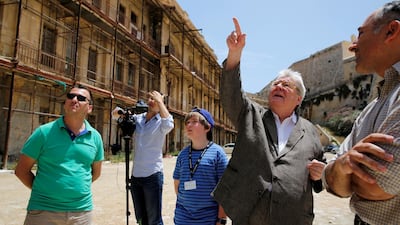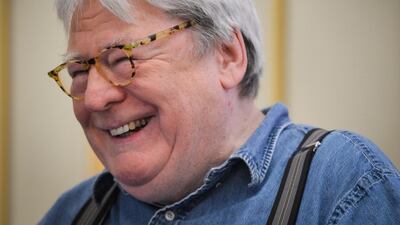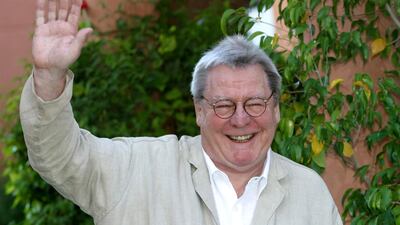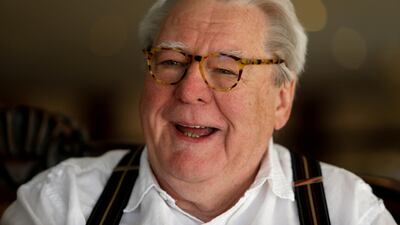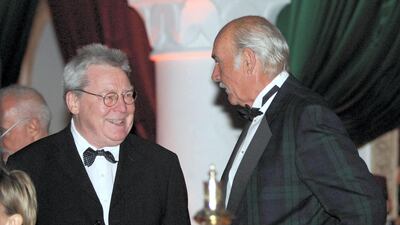Alan Parker, who directed films in a variety of genres and celebrated music with movies such as Bugsy Malone, The Commitments and Evita, died on Friday at the age of 76.
The British director, whose films have won 10 Oscars and 10 Golden Globes, also explored US race relations with Mississippi Burning and chilled audiences with the film noir Midnight Express.
The Academy of Motion Picture Arts and Sciences called Parker “an extraordinary talent”.
“His work entertained us, connected us and gave us such a strong sense of time and place,” it said in a tweet, calling him “a chameleon” for his ability to change with the times.
Andrew Lloyd Webber called Parker “one of the few directors to truly understand musicals on screen”.
His family said he died “following a lengthy illness”.
Modest beginnings
The son of a north London house painter and a dressmaker, Parker first tried his hand at writing and directing commercials.
He made his first film for the BBC before blossoming in the 1970s with a rapid succession of standout hits, starting with the 1976 gangster musical spoof Bugsy Malone.
Its cast of children included a 16-year-old Scott Baio in the lead as an Irish-Italian boxer, and Jodie Foster as gangster moll Tallulah. She was only 13 at the time, but already had seven films to her name.
Bugsy Malone got the critics' attention. Midnight Express, however, a dark Oliver Stone-scripted thriller about a US student thrown into a Turkish prison for drug smuggling, earned Parker his first Oscar nomination.
He followed that up in 1980 with the genre-setting American teen musical Fame, which was spun off into a popular US TV series and led to other musical dance films.
Parker shifted gears completely with Pink Floyd – The Wall, whose dark themes and powerful imagery helped build up the British rock group into superstars in 1982.
“Alan was my oldest and closest friend, I was always in awe of his talent,” said fellow British film director David Puttnam, who produced some of Parker’s movies.
“My life and those of many others who loved and respected him will never be the same again.”
Controversy
Parker moved from exploring music to asking questions about the US treatment of African-Americans in the Deep South in the 1960s, with the 1988 drama Mississippi Burning.
The film, which was based on the FBI’s investigation into the disappearance of three civil rights leaders, was a critical and commercial success.
But it also sparked controversy and an unexpected political debate.
Some US civil rights leaders, including the widow of Martin Luther King Jr, Coretta Scott King, condemned it for fictionalising events and portraying the FBI too positively.
The head of the National Association for the Advancement of Colored People, a US civil rights organisation, said: “It reeks with dishonesty.”
Parker stood by his work, but admitted he never expected the backlash.
“I was somewhat bemused by it all – and a little punch-drunk,” he wrote on his official website.
“It certainly wasn’t intended to be the definitive story of the black Civil Rights struggle.”
The film won only one Oscar, for cinematography, after being nominated for seven.
Cult status
But Parker's career did not suffer. The director returned to his musical roots with the 1991 comedy drama The Commitments, based on the novel by Irish writer Roddy Doyle.
The film gained cult status and became especially celebrated in Ireland.
“I have not had a more enjoyable time filming than when I made this movie in the daily, hilarious company of these brilliant kids,” Parker recalled on his website.
"Probably of all my films, The Commitments is the most liked – particularly by critics."
Parker's last major success came with the 1996 musical drama Evita, in which Madonna played Eva Peron, a former first lady of Argentina.
The adaptation of Lloyd Webber’s stage show won three Golden Globes and an Oscar for Best Original Song.
Parker retired soon afterwards, spending the last years of his life painting. He was knighted in 2002.
The British Academy of Film and Television Arts (Bafta) said it was “deeply saddened” by the news.
James Bond producer Barbara Broccoli said she was "heartbroken".

